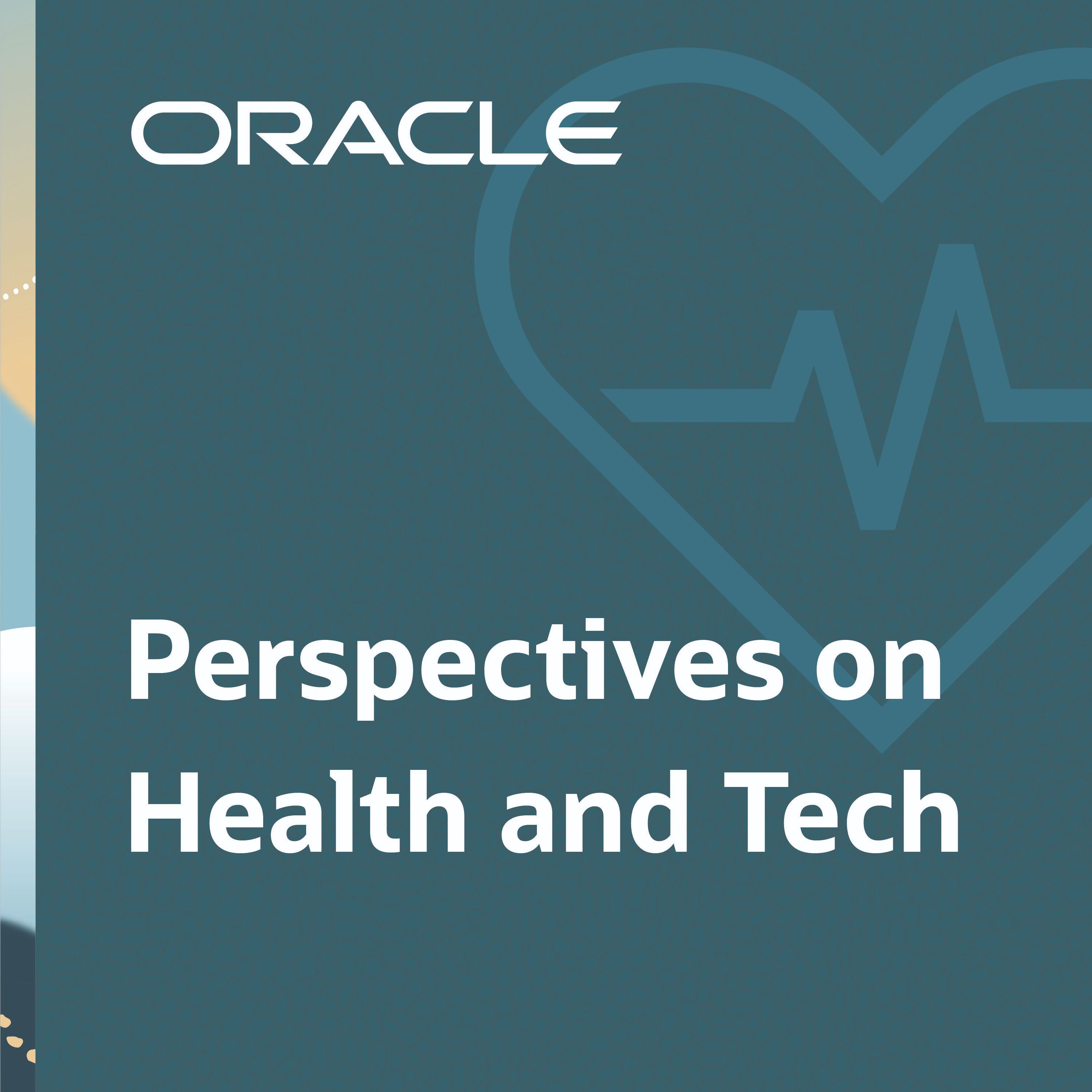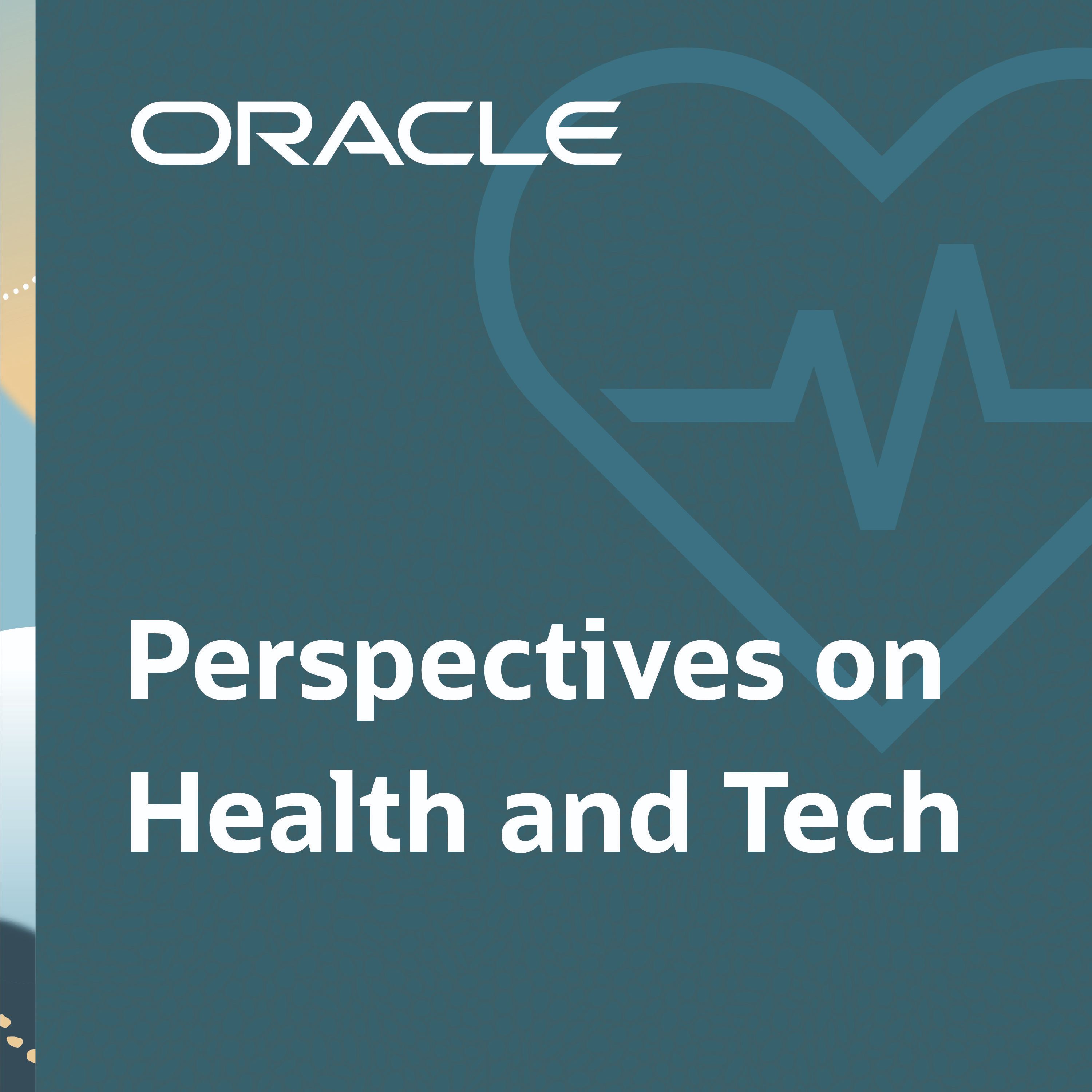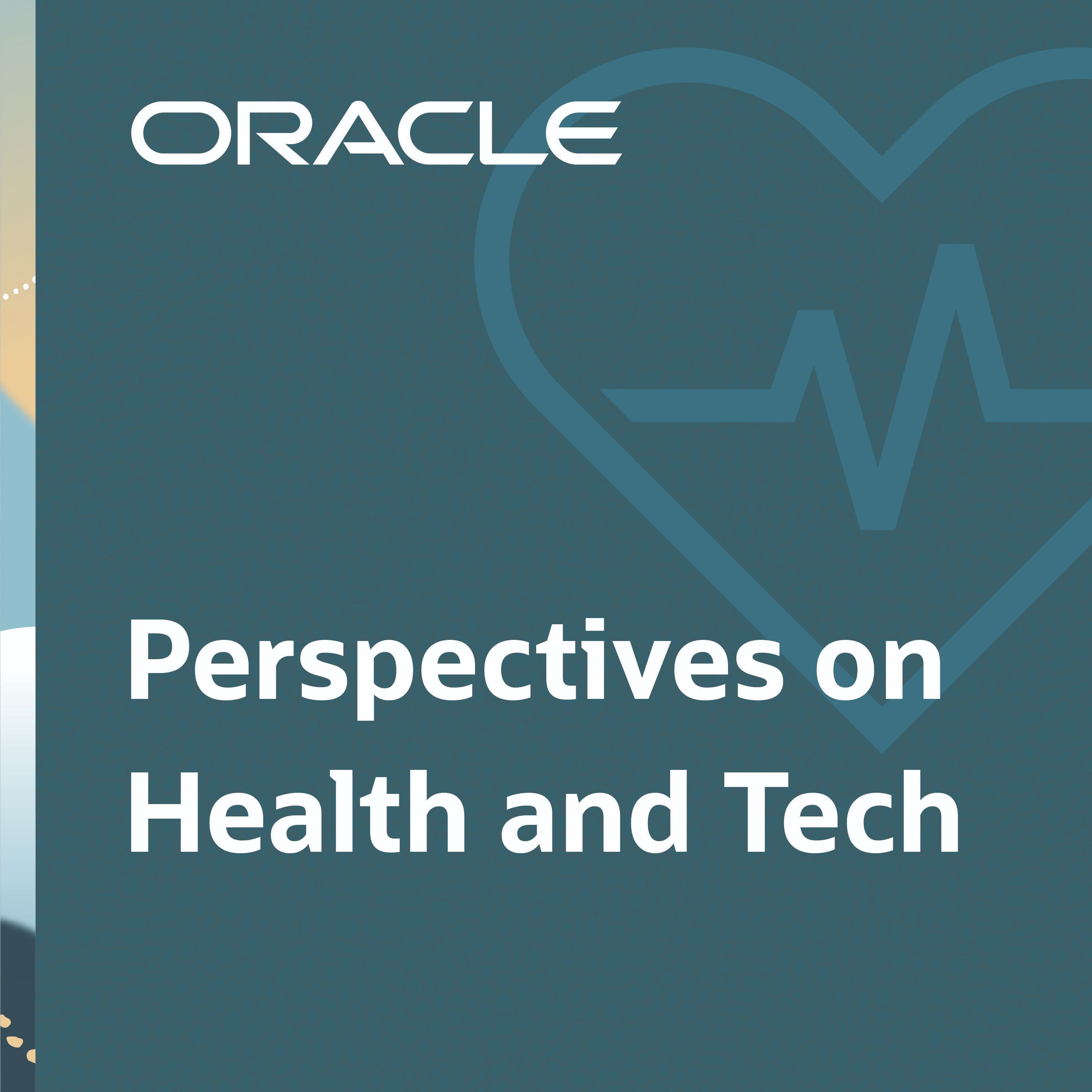Reimagine Care Delivery with GenAI
Description
Generative AI is a known disruptor in healthcare today. Will this transformational technology be embraced by clinicians, patients, and healthcare organizations? Listen in as two experts from Accenture Healthcare and Oracle discuss the difference between traditional AI and GenAI, the opportunities that GenAI is presenting to the industry, and the need to lean in to utilize technology as an enabler and a change agent. Hear how care delivery can be reimagined with GenAI and how this technology has the potential to be applied to help reduce clinician burnout, augment the clinician-patient relationship, bridge workforce shortage gaps, reduce margin pressure, and more.
--------------------------------------------------------
Episode Transcript
00:00:00 :17 - 00:00:22 :10
Michelle
You're listening to Perspectives on Health and Tech, a podcast by Oracle with conversations about connecting people, data and technology to improve health for everyone. Hi, I'm Michelle Flemings. I'm the industry executive director for Health Care for North America Cloud Infrastructure at Oracle. Glad that you're here. We're in the age of artificial intelligence.
00:00:22 :12 - 00:00:41 :29
Michelle
The opportunities that we're presented with using A.I. as an industry are truly groundbreaking. And to be honest, I think we're just getting started. I want to focus today on a subset of traditional AI and want to talk a little bit about generative AI, some of the ramifications, some of the risks, benefits and what does it mean to health care.
00:00:42 :01 - 00:00:47 :29
Michelle
I am delighted to sit across today from Tej Shah and I'll have him introduce himself.
00:00:48 :01 - 00:01:08 :00
Tej
Thanks, Michelle Tej Shah I'm an emergency medicine doctor, a managing director, and Accenture's global health care practice. I've got a ton of experience working across different parts of health care as a consultant, obviously, but also as a venture capitalist, investing in companies and most recently starting a company in the health tech space.
00:01:08 :00 - 00:01:16 :07
Michelle
We're talking about AI and we always have to start with what is the comparison between traditional versus generative AI?
00:01:16 :09 - 00:01:17 :21
Michelle
How would you put that?
00:01:17 :23 - 00:01:41 :11
Tej
We've been talking about AI for 50 plus years. This is not a new thing. We've been talking about how we can leverage data to get insights going from analytics to AI to GenAI. Really the difference is, you know, before with AI we were able to extract data and insights from data so we could figure out what the next obvious data point was going to be.
00:01:41 :13 - 00:02:19 :03
Tej
And in 2017 there was an article that was published by Googlers around attention is all that matters, right? And what happened with that papers is we came up with a completely new framework where we're now able through GenAI to not just predict what's the next data point, but understand what's the next word that we can generate. And it's taking into consideration the context of the sentence to be able to make that prediction so that it's actually appropriate and it's opened up a whole bunch of opportunities that we're going to talk about today that is really transformative.
00:02:19 :05 - 00:02:30 :03
Michelle
Let's get into some of those opportunities. I think it's fascinating that it's been as long ago that A.I. came about and the general public really doesn't know.
00:02:30 :03 - 00:02:35 :14
Michelle
let's talk about some of the opportunities in patient care that exists because of where we are now.
00:02:35 :14 - 00:02:40 :28
Michelle
With A.I.. We do a lot around documentation. Where else should we be going?
00:02:41 :00 - 00:03:08 :03
Tej
Back in 1996, you know, we started using search engines and it wasn't really until early 2000 when Google came around and the search bot search box became our librarian and around that time there was an article that was published by Will Carr in The Atlantic called Is Google Making Us Stupid and what he really meant.
00:03:08 :03 - 00:03:33 :29
Tej
when you read the article was, are we thinking differently? Are we using our brains in the same way or reading as deeply as we did before? And obviously the answer is no. I think we continued to use our brains and we continue to, but we were using this tool as a librarian. We were using it to identify information quickly and be able to access it, you know, more readily.
00:03:34 :01 - 00:04:04 :19
Tej
And what GenAI has done for us is start to be an advisor. It's enabling this transformation from technology, being a librarian to an advisor and that's what we're using AI for now. And GenAI today, right? So this idea of documentation and this is all relevant because the next sort of wave of what we're going to do with GenAI is it's going to start to act as an agent.
00:04:04 :21 - 00:04:30 :28
Tej
It's going to start to enable us to take these tasks away from the from our day-to-day workflows and enable us to operate more efficiently. There is no reason, for instance, that a doctor like you or I should have to, you know, once we've submitted that a patient needs to do a specialist appointment, continue to follow up, make sure that that appointment was scheduled and have a bunch of people that are in that workflow follow up on it.
00:04:31 :01 - 00:04:49 :27
Tej
It should just happen. And I think that generative AI is going to create these agents and these agents are going to be linked to one another. We're going to chain them together and it's going to do that follow up. It's going to make that experience more seamless, really enabling clinicians to do the work that gives us joy.
00:04:49 :29 - 00:05:07 :07
Michelle
Let's drill down on that now, because you said something fascinating there being an agent. How I see it as being is now, I don't have that extra chaos and clutter to remember. As an ER doc, we're in the midst of the chaos we are in and we're trying our best to multitask. And there are fewer of us now.
00:05:07 :10 - 00:05:25 :16
Michelle
There are others that are doing an exit now and then. We also don't have as much of a pipeline because, as you know, some of our residency programs didn't fill out. So three years from now, we're talking a massive deficit. And across the board in health care, there has been an exodus and a shift out of health care to other careers.
00:05:25 :19 - 00:05:45 :23
Michelle
How do you see then us utilizing Gen AI to augment and maybe bridge some of those gaps with our shortages? The agent is great, but can we maybe think about a couple of other things that maybe might be even more magnificent? Like it's maybe front office, back office? Is there opportunity there, you think? Because we don't think about them a lot.
00:05:45 :23 - 00:05:47 :04
Michelle
I do believe, absolutely.
00:05:47 :04 - 00:06:10 :27
Tej
So let me just start. The clinician shortage is durable and it's secular. This is something that I say over and over again. You know, we have projected forward what we anticipate the workforce in health care is going to look like. We know there's going to be a shortage. But if you look at some of the research that's being published now, just at the end of last year, there was a study that published that looked at nurses and doctors that are in school today.
00:06:10 :27 - 00:06:43 :15
Tej
And, you know, you might know that of those surveyed students, between 20 and 30% of them said they're going to drop out. They don't see the future of health care as a promising career that they want to pursue. That's going to be fulfilling in the way that maybe when we were going to school, we saw. And I think that's really disheartening because truly I think that, you know, when the way I thought about health care and the way the reason I pursued a degree is because I wanted to take care of people.
00:06:43 :18 - 00:07:05 :18
Tej
And what's happened along the way is so many things get in the way of that, Right. That joy that we were talking about that I mentioned, that's gone because we've got so much administrative burden, so many distractions that sort of pull us away from that day to day care. It's actually started to deteriorate or continue to deteriorate.
00:07:05 :18 - 00:07:28 :18
Tej
That relationship between the doctor and the patient that I think is so sacrosanct. It's so important. And I think patients want it. Physicians want it that nurses want it back. And so when I think of front office and back office, it's not just agents that are going to be doing this work. What it's going to do is it's going to take those tasks away, but it's also going to start to transform.
00:07:28 :25 - 00:07:55 :11
Tej
What role, as a clinician, I play in the delivery of care, right, where maybe 30, 40% of my time I was it was taken up by doing that administrative work. Now I'm going to have it back to refocus on the patient. And it doesn't just drive productivity improvement, it drives greater engagement, it drives better experience for us as clinicians and for patients.
00:07:55 :13 - 00:08:19 :10
Michelle
So back on Joy, I would love to be back there as well, cause I remember that feeling my first, but the patients and I could do anything and everything and this was going to be magnificent. And then you're right. Little by little, the administrative stuff started to become a burden. With GenAI,, how do you see us being able then, in this world of technology, having unfortunately had that adverse effect?









